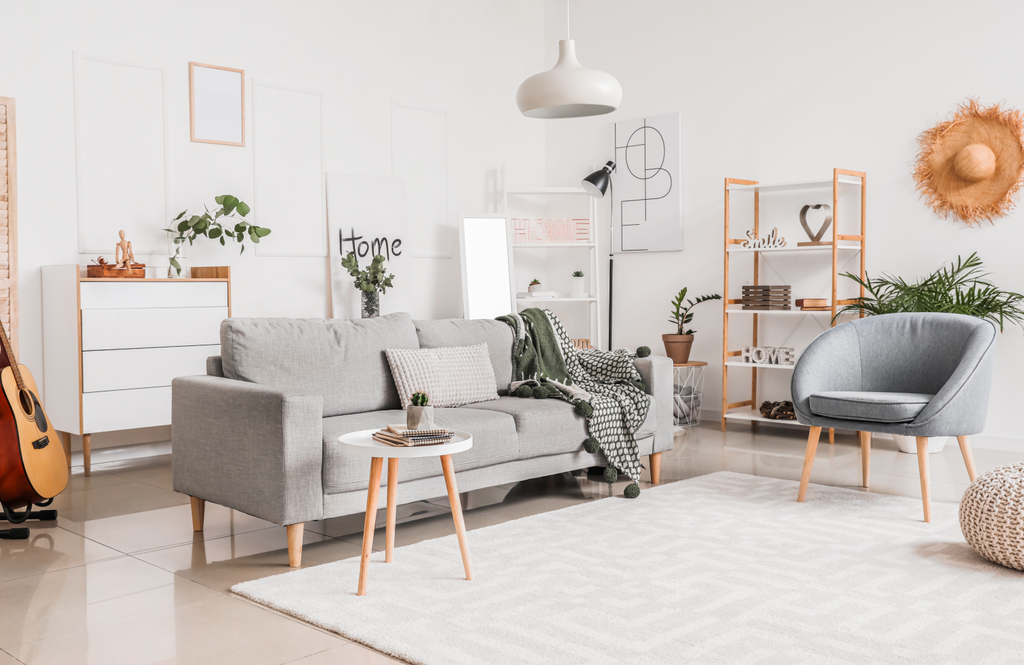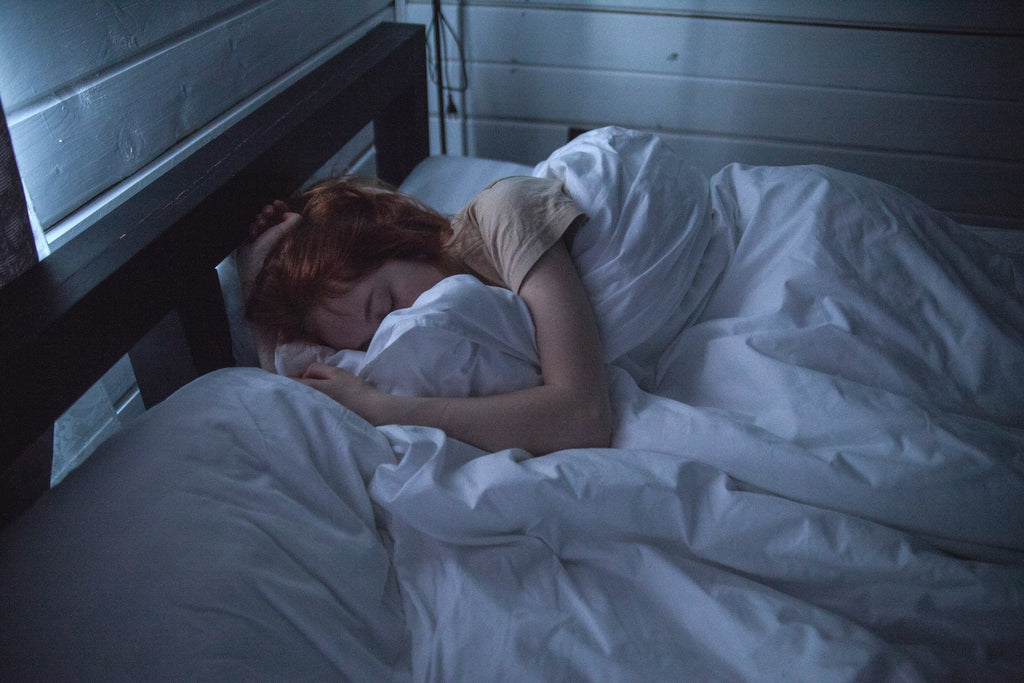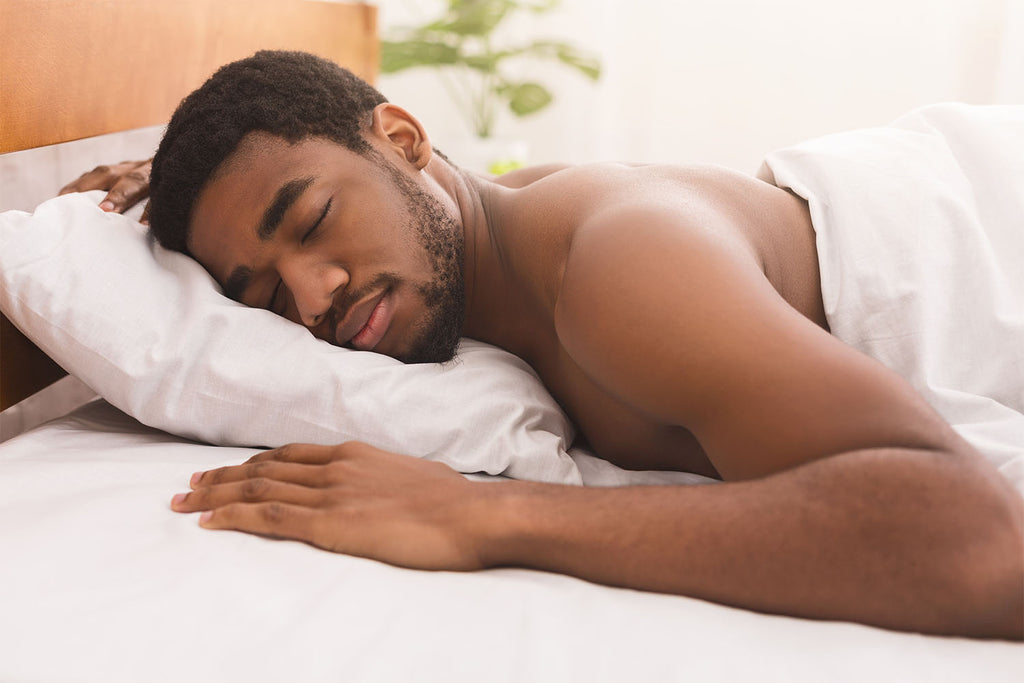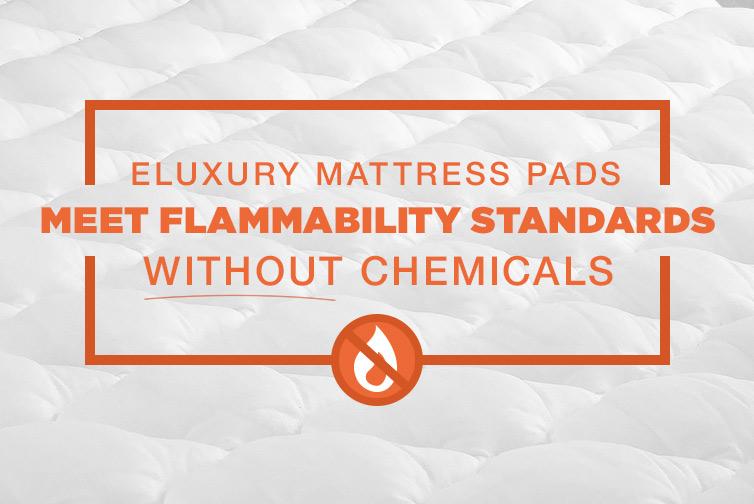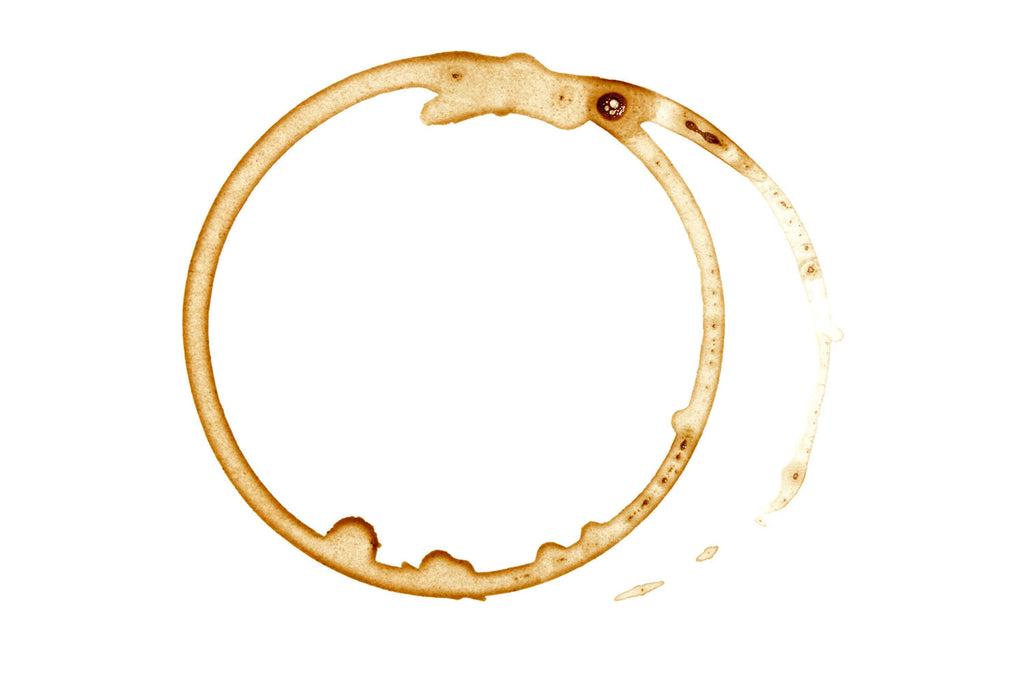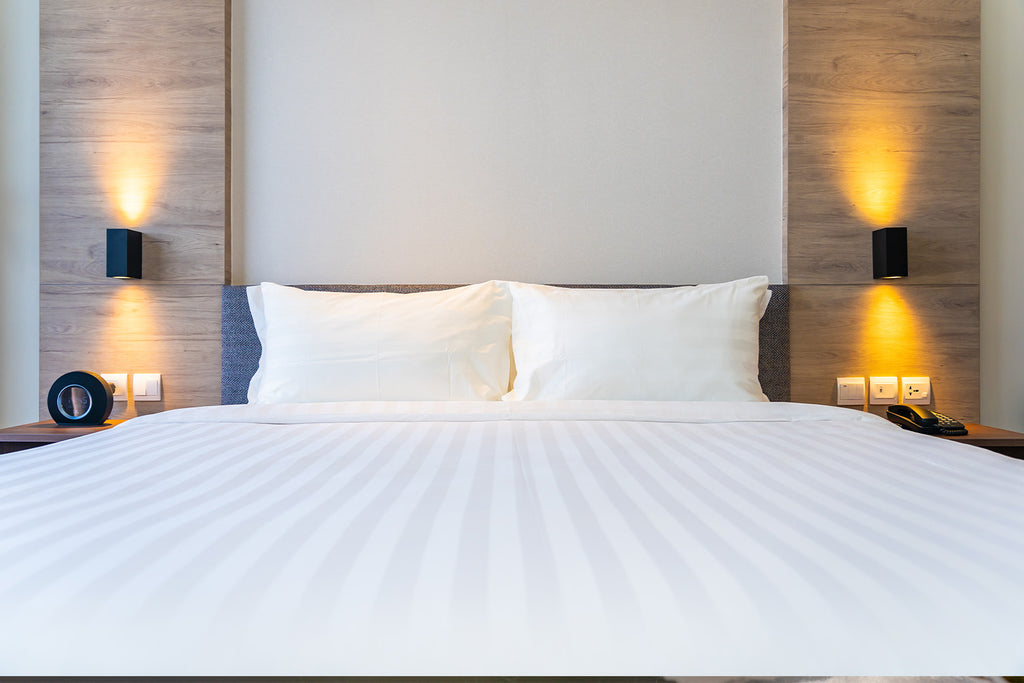
What Is a Good Thread Count for Sheets

Have your sheets seen years of use and are feeling a little less comfortable than they once were? Maybe you’re looking to replace them with something that will make your sleep experience that much more enjoyable.
If so, you have to be looking at the thread count! Thread counts on sheets will determine how soft and breathable your sheets are, so read on to make sure that your new purchase doesn’t put a wrinkle in your sweet dream plans.
Before we look at what types of sheets you should be purchasing for your needs, let's break down what thread count means. Then, we’ll cover how to use thread count to your advantage when investigating a new sheet set.
What Is Thread Count?
Thread count looks at the number of horizontal and vertical threads per square inch of fabric. In simpler terms, it is how tightly woven the sheets are. To calculate this number, manufacturers look at the weft threads (horizontal) and warp threads (vertical). If there were 100 weft threads and 100 warp threads per square inch, the count would be 200.
If the thread count tends to be higher, that means that you will be buying a product with a softer feel. High thread count sheets will last you longer than sheets with a low count and, in some cases, will even get softer with repeated usage.
This is why looking at the number of threads when buying new sheets is essential not only to ensure that you are getting a comfortable sleep while in bed but also to ensure that you get the most use out of your sheets that you can.
Good sheets tend to have a typical thread count of anywhere between 200-800, but this does not mean that sheets with a lower thread count, say sheets with a thread count of 200, are low quality.
There can be sheets with an insanely high thread count that achieve that number through doing things like stitching multiple threads/yarns together, so a sheet with a thread count of 800 does not necessarily mean that it is a higher-quality product than a sheet that has a thread count of 200.
Why Thread Count Matters
Typically, sheets with a thread count lower than 200 means that the sheets could be feeling rough against your skin, which is perhaps why you are looking to switch out your current sheets.
A low thread count indicates one of two things: the fabric is woven too loosely, or it could even mean that it has been created too thick. This is what creates that rough feeling from low-quality sheets.
Additionally, too high of a thread count could mean that the product was not made with the right intentions in mind, which could lead you to pay more money for a lower-quality sheet.
Thread Count for Different Sheet Types
Now that we know what thread count really means, let's break down the differences between thread counts and what each specific count will mean for the types of sheets you are purchasing.
Remember, there is not one special number in terms of thread count that you should be looking for, but these specific types of materials should fall within this range of thread count:
- Ideal thread count for Cotton fibers: 200-1000
- Ideal thread count for Egyptian Cotton Sheets: 300-400
- Ideal thread count for Percale Weave: 180-400
- Ideal thread count for Satin Weave: 300-600
- Ideal thread count for Bamboo Sheets: 300-500
- Ideal thread count for Linen sheets: 80-140 (linen sheets typically don’t have the thread count listed; it’s usually not a good indicator of quality for this type of material)
These are simply rough recommendations of the ranges you should keep in mind when buying new sheets. It’s important to recognize that the different materials sheets are made out of means a different ideal thread count for each of them.
How To Tell When the Thread Count Is Inflated
As you know by now, a higher thread count does not mean that you will be receiving a higher-quality set of sheets. This should not discourage you from purchasing sheets with a high thread count, but keep in mind that a thread count that is well above 1000 should come to you as a red flag.
Not only is a thread count well above 1000 usually misleading, but this high thread count also comes with concerns over the quality of the sheets.
Sheets That Don’t Use Thread Count
Now that those are covered, let’s go over some types of sheets that do not use thread count so that you don’t go buying these types of sheets.
- Silk sheets
- Microfiber sheets
- Flannel sheets
- Jersey sheets
These types of sheets do not use thread count as a form of measurement because they are not woven/produced the same way that cotton sheets or sateen sheets are. Remember to keep this in mind so that you don’t purchase sheets that use a whole separate system of measuring the quality of their product.
Again, there is not a specific number that will magically provide you with the best possible sheets, but use the lists of ideal thread counts above, and you should be satisfied with any purchase you make!
Here is a list of some good options when it comes to thread count and sheets:
- Bamboo bed sheets
- Cotton bed sheets
- Percale weave cotton sheets
These sheets range in price and thread count, so they should provide you with some variety when looking for what types of sheets you’re trying to swap out for your bed setup!
Our Sheet Recommendations
Bamboo Sheets
For people who struggle with allergies or are hot sleepers, bamboo sheets might be the best sheets for you.
eLuxury’s bamboo cooling sheets are made from high-quality, elegant rayon sourced from the bamboo plant. Bamboo rayon is hypoallergenic, moisture-wicking, and resists odor and bacteria. High-quality sheets made from bamboo rayon also resist pilling (so, unlike your favorite t-shirt, bamboo fabric has the durability for the long haul).
Cotton and Percale Sheets
Before we talk about this bedding type, first, let’s define percale. A percale weave is a plain-weave fabric but don’t let the word “plain” fool you: Percale sheet sets are constructed far tighter than the button-down you wear to work for a softer weave.
Our Vintage Sheet Set is made with 100% combed cotton (a type of cotton that is softer than the comfiest t-shirts) in a percale weave. Plus, the neutral but dynamic colors ensure that these sheets will match your favorite duvet cover.
Cotton Sheets
When purchasing 100% long-staple cotton, you will want the highest thread count — 1000. Our 100% Cotton Sheet Set is the epitome of luxury. With a sateen weave and a fully elasticized fitted sheet, this set marries form and function.
Extra-long fibers (long-staple fibers) are soft yet sturdy. This entire set is OEKO-TEX® Certified so that you know your sheets feel good and do good.
Tips To Keep In Mind When Buying New Sheets
Now that we have gone over the intricacies of thread count and what it means in terms of specific numbers and such, let us discuss a couple of things you should remember when purchasing sheets.
If there is still a tag on your sheets or you remember where you purchased them from, try to look online and see if you can find them again. Doing this will ensure that you don’t buy a similar set of sheets in terms of materials and thread counts, which will prevent a purchase of sheets that are just as uncomfortable. Depending on the material of the sheets, the thread count they have, and so on, you can determine if you would like a similar type of sheet made out of the same material.
If you do not like the feel of the material, say, for instance, you have cotton sheets and the thread count is below 200, maybe swap those out for 100% cotton sheets with a higher thread count.
Knowing what sheets you have now and what about them is dissatisfying in particular will ensure that you are purchasing sheets that will leave you comfortable for countless nights to come!
Conclusion
As a general rule of thumb when buying new sheets, knowledge is power. That doesn’t mean you have to pull an all-nighter to find a pair of sheets you love. Getting good rest is simple as long as you stick to the essentials. Build from the bottom up, bedframe, headboard, mattress, and sheets.
When looking at sheets, consider the thread count. Just because the thread count is insanely high doesn’t necessarily mean the sheets are suited to your bed. Investigate the fabric material, weave, any environmental certifications, and, yes, the thread count.
Follow these tips on thread count, and you should be able to get the rest you need in no time!
Sources:
Best Thread Count for Sheets | Sleep Foundation
7 Different Types of Bed Sheets and How to Choose One | The Spruce
Why You Need to Know About Warp and Weft in Embroidery | The Spruce Crafts
OEKO-TEX® - for more sustainability in the textile and leather industry | OEKO-TEX®
